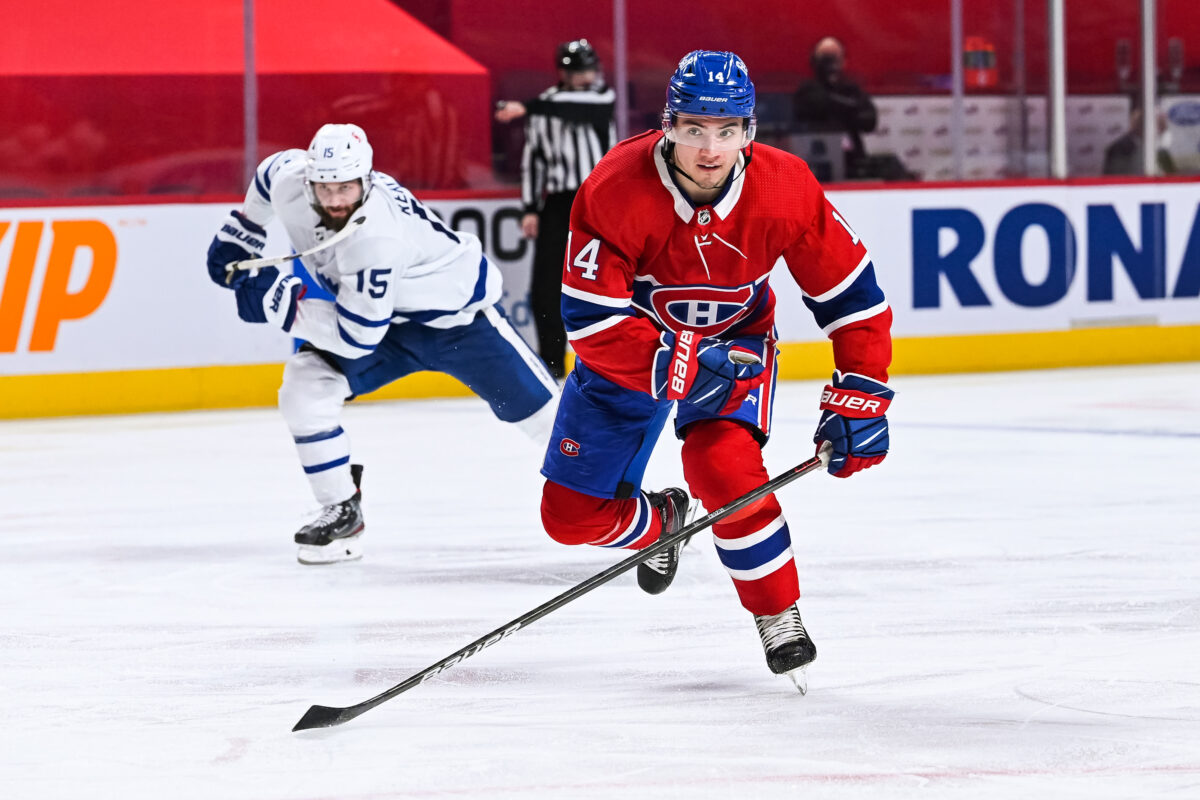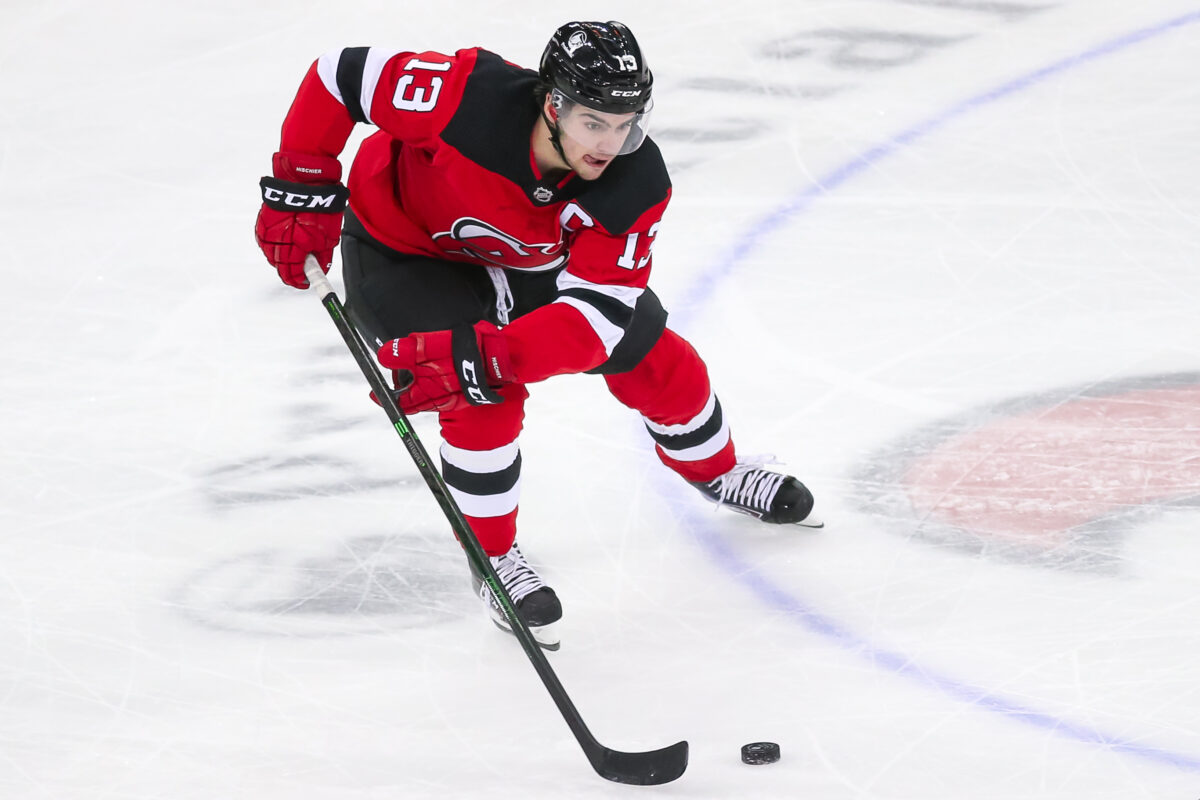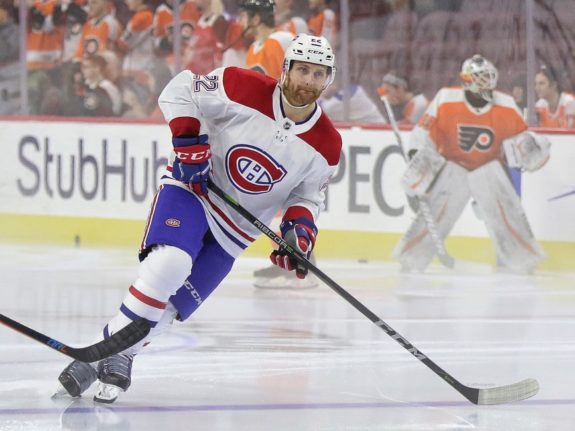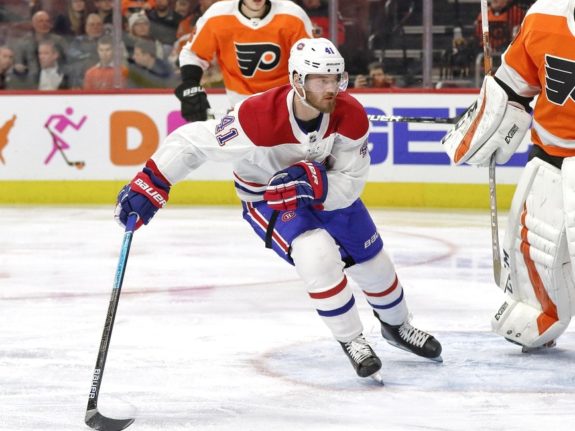There’s one prevailing silver lining of the Jesperi Kotkaniemi offer-sheet saga. The Montreal Canadiens now know not to take circumstances such as restricted free agency (RFA) for granted, especially with regard to Nick Suzuki.
Suzuki vs. Kotkaniemi
Truly, general manager Marc Bergevin should be breathing a sigh of relief that the Carolina Hurricanes signed Kotkaniemi and didn’t wait until the 2022 offseason to try their hand at prying away Suzuki. The Canadiens themselves shouldn’t wait either. Now they have ample warning and know from experience not to.

In some ways going after Suzuki would have made more sense, especially now that Hurricanes have gone ahead and done it (in all fairness after the Habs pulled a similar but unsuccessful stunt, signing Sebastian Aho back in 2019, coincidentally mere days after the Canes drafted Suzuki’s brother, Ryan).
Furthermore, Suzuki is the superior player and currently lines up as the Habs’ No. 1 center. While Kotkaniemi can still get to that level, that Suzuki has reached this point of his career during his entry-level contract is both a testament to his skill (and work ethic) and Bergevin’s admitted prowess on the trade front, having acquired him in the Max Pacioretty deal.

Ultimately, Kotkaniemi was (relatively) expendable to the point that it didn’t make sense for the Canadiens to match the $6.1 million price tag on the hostile takeover. Parlaying the first-round pick they got as compensation (along with a second) into Christian Dvorak, who has a lower hit, should serve the Canadiens well, at least as a short term upgrade.
Elias Pettersson and Nico Hischier as Case Studies
In contrast, the Canadiens can’t afford to let Suzuki slip away. They’d likely match any offer sheet that comes his way as a result, but it obviously makes sense to get him under contract at as cost-effective of a hit as possible, on their own terms. That’s easier said than done, if you look at the latest contracts of Elias Pettersson and Nico Hischier, the two top centers from Suzuki’s 2017 NHL Entry Draft.
Pettersson just re-signed with the Vancouver Canucks for $22.05 million over three years ($7.35 million hit), with what is being called a bridge deal, which should be scary to Habs fans and Bergevin alike. Hischier meanwhile went long term, signing a seven-year, $50.75 million deal ($7.25 million hit) with the New Jersey Devils that started last season.

If the Canadiens are wise, they’ll try to mirror the Hischier deal with Suzuki’s upcoming second contract. In today’s landscape, based on what Suzuki has already proven, ~$7 million per season makes sense. On the other hand, in the event both sides go the bridge deal route, Suzuki probably clocks in at around $6 million based on his worth to the Habs and relative to that of Pettersson, who’s a point-per-game star in this league.
Suzuki’s not quite there yet, but he’s conceivably on his way. So, going long term is the way to go. For the sake of this piece, the assumption is the Canadiens have to get Suzuki under contract at all costs, conceivably streamlining negotiations by going with a bridge, so the $6 million figure it is. For the record, the Canadiens are currently right up at the $81.5 million salary cap ceiling, with Shea Weber’s hit headed to long-term injured reserve (LTIR).
Assuming the status quo remains intact and the cap increases by $1 million for the 2022-23 season, Bergevin still has his work cut out for him. Suzuki only has a hit of $863,333 right now. Add that $1 million and you still need to account for approximately $4.2 million to make up the projected difference.
Thank G-d for Karl Alzner
A large chunk should come from Ben Chiarot’s $3.5 million contract once it expires. Keeping the pending unrestricted free agent in the fold is a luxury the Canadiens will no longer be able to afford. With Alexander Romanov due to gain additional responsibility and prospects Mattias Norlinder and Kaiden Guhle knocking at the door, the Canadiens should be okay, though.
Related Link: Earlier the Canadiens Trade Chiarot the Better
If one of the two makes next season’s roster instead of Chiarot, that’s an additional $2.6 million for Suzuki in theory ($3.5 million – ~$900,000). The Canadiens would still have to make up $1.6 million to get to approximately $6 million for Suzuki. Kotkaniemi is arguably proof rushing prospects is not the way to go, but, if both prospects make it and the Canadiens also move on from Brett Kulak (another pending UFA), it would leave a difference of just $600,000 to get Suzuki signed give or take. With the hit of Karl Alzner’s buyout decreasing substantially from $1,958,333 to $833,333 in 2022-23, the Canadiens get there.

So, it is possible. There are other, less-significant moving parts to consider, though. Jake Evans re-signed for three seasons at a $1.7 million cap hit ($950,000 increase) that starts next season. Romanov and Artturi Lehkonen must be re-signed as RFAs like Suzuki.
At the opposite end of the spectrum, despite being a RFA himself, goalie Samuel Montembeault’s $750,000 hit won’t be sticking around, as the Habs won’t be carrying a third goalie (or a 24th contract, which is what he currently represents). Defenseman Sami Niku, a fellow pending RFA, might be re-signed or not. Either way, it will be for a manageable amount or that same manageable amount will go to a replacement. He’s a theoretical wash. Ditto for Cedric Paquette, Mathieu Perreault and Chris Wideman, who are each on expiring deals.
First Byron, then Suzuki
It goes to show, even looking at depth players, the team’s make-up can change a lot in a one year. Look at just the last few months. More to the point, it’s going to have to, to lock up Suzuki. Ultimately, tough decisions will have to be made.
In an ideal world, the Canadiens would be able to offload the $3.4 million cap hit of Paul Byron, who’s also hitting LTIR, as the bottom-six forward’s contributions no longer align with how much he’s making. In a realistic world though, they’d be more likely to be able to trade away Josh Anderson’s. Both are bad contracts for the Canadiens, but Anderson, as an in-his-prime power forward, would probably be more attractive to other teams, in spite of his seven-year, $38.5 million deal.

It should be pointed out that, with Byron projected to return mid-season, the Canadiens are going to have to make room to some extent, even before Suzuki needs a new contract. The Canadiens should approach it more so as an opportunity to get out in front of the issue, because it’s not going away without decisive action taken on the part of Bergevin.
The urgency should not be simply to make room for Byron or acquisitions at the trade deadline to go on another run, but rather to make room in general, in case Suzuki does receive an offer sheet next offseason. As it stands right now, the Canadiens are a target because of their tenuous cap situation. If the offer’s high enough, the Canadiens might not even be able to match, even if they want to. The hope is it doesn’t get to that point. There’s no good reason for it to, not now.
